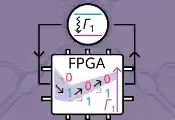Quantum eMotion Appoints International Cybersecurity Expert as New Board Member
MONTREAL, May 17th, 2024 -– Quantum eMotion Corp. (QeM) is delighted to announce the appointment of John Young as the new Board Member, showing continuous commitment to strengthening its cybersecurity and IT operations.
With over 35 years of corporate experience in cybersecurity and IT Operations, John brings a wealth of knowledge, expertise, and valuable networks to QeM. He’s made many TV and podcast appearances, written dozens of articles on cybersecurity, and is the author of four books. Among his corporate experiences, John was network director of the $41 billion C-17 project atMcDonnell Douglas, a consultant at Kaiser Permanente for the buildout of a major 200-operator call center and accompanying data center in Los Angeles, and spent 27 years at IBM’s Cloud Division, where he managed the IT infrastructure for 42 offices worldwide, managed data centers, made multi-million dollar equipment purchases, led a software development team, managed the assimilation of a $650 million corporate acquisition, and was lead cybersecurity SME for the team that protected the division’s most sensitive information systems.
John will replace Scott Rickards, who has decided not to renew his membership. The board will continue to consist of five directors, four of whom will remain independent. In recognition of his service, John will receive a grant of500,000 options.
Francis Bellido, QeM’s CEO, commented, "I am thrilled to welcome John to ourBoard. He is a renowned cybersecurity expert with extensive experience at industry giants like IBM and McDonnell Douglas. His expertise in cybersecurity compliance, breach prevention, and IT operations management is critical for QeM’s continued growth and success."
John Young added, "I am very excited to join the QeM team and contribute to its development and future commercial achievements. QeM’s technology is unique and essential for improving current security measures and addressing the future threats posed by quantum computers."




































